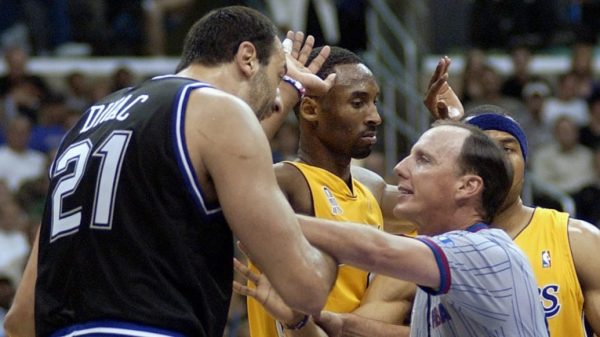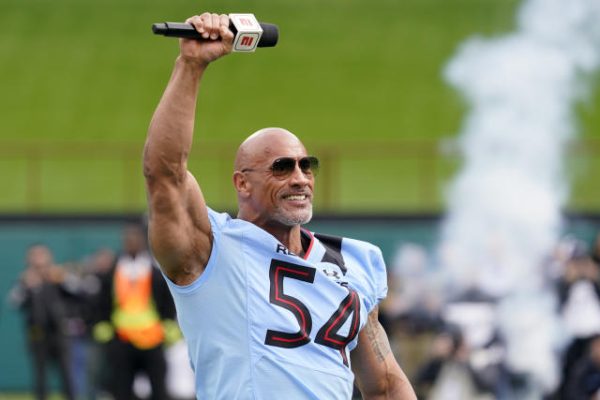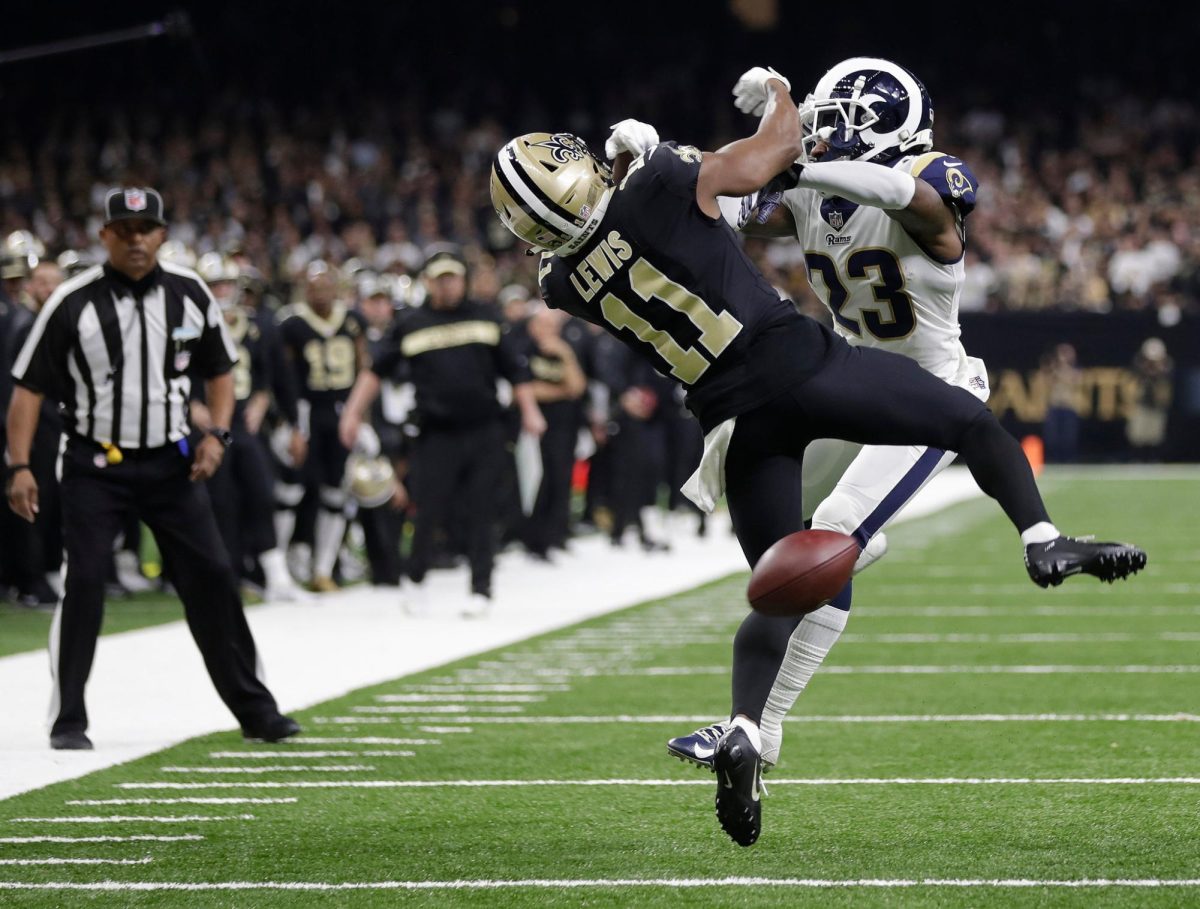In 2019, the sports world witnessed the worst referee call in recent sports history during the NFL NFC Championship Game between the Los Angeles Rams and New Orleans Saints. This pivotal matchup came down to the wire, with the result of the game stemming from one major no-call: an obvious pass interference completely missed by the referee. As ESPN TV personality Stephen A. Smith put it, “There’s no question that it was a highway robbery here. The reality of the situation is that he was mugged. The ball was about 4 yards away when he got hit. It was clearly pass interference.” Referee inconsistencies provide media attention for leagues, leading to an increase in profit, which sports leagues sadly prioritize over the integrity of the game.
A prominent example of the NFL prioritizing profit over the integrity of the game came in the 2012 NFL season. 2012 was a rough year for the NFL as the season began with a referee strike over compensation. The referee strike led to high school refs being promoted to NFL referee jobs. The result of this strike went about as expected. In Week 3 of this season, the game between the Packers and Seahawks went down to the wire. On the final play, Seahawks quarterback Russell Wilson threw a 40-yard prayer into a crowded end zone, intended for receiver Golden Tate. Packers safety M.D. Jennings seemed to have intercepted the pass, but then Tate shoved the Packers defender to the ground (which should have been called offensive pass interference), and then grabbed the ball while it was in Jennings’ hands. Both players were touching the ball, and the officials ruled it a game winning touchdown for Seattle. Players, coaches, and analysts were livid. Monday Night Football analyst Jon Gruden called the game “tragic” and “comical.” Several Packers players let out their frustrations on social media. Guard TJ Lang dared the NFL to “fine me and use the money to pay the regular refs.” This controversial ending led to a net increase in revenue for the NFL, as through increased media coverage, the NFL gained significantly more recognition as people talked about the game more. The balance between making good TV versus playing out the game in the most fair way possible isn’t just an issue in the NFL however.

This issue is also prominent in the NBA. A prime example of this in the NBA is the 2002 Western Conference finals. This series featured a matchup between the Sacramento Kings and the Los Angeles Lakers, who were loaded with star power and big name talent. Entering Game 6, the Kings were up 3-2, needing only one more win to advance to the finals. However, throughout the game, the Kings were repeatedly targeted by the refs with inconsistent calls and clear bias towards Lakers’ players. In a game that was tied entering the fourth quarter, the Lakers shot a whopping 27 free throws in the final segment. The Kings shot 9. This discrepancy at the line all but sealed a four-point Lakers win, forcing a Game 7 with a trip to the finals on the line.

After the Kings eventually lost the series, many people were furious about the unfavorable calls they received, believing that Game 6 was rigged in the Lakers’ favor. Infamous NBA referee Tim Donaghy spoke out about this situation. “He claimed several times to several of us that he was the NBA’s go-to guy,” Donaghy said of longtime NBA referee Dick Bavetta. “He was put on Game 6s to force Game 7s. I think there’s no doubt in my mind, or in the minds of a lot of people from the NBA.”
The rigging of game 6s in the NBA playoffs brings a significant amount of extra revenue to the NBA. AdAge, a renowned global media company, reported, “A seventh game likely would have tossed another $45 million on the pile.” And this excess revenue comes just from ads. Including TV viewership, ticket sales, and merchandise sales, this number goes up significantly. AdAge estimated that had there been a Game 7 in the 2015 finals, it would have likely drawn an audience of 32 million viewers and a 21.2 household rating, up from an average of 20 million viewers and an 11.6 rating for the previous games in the series. These statistics represent the NBA’s, and other professional sports leagues, intentions to affect the outcome of games, and even sometimes as Donaghy said, “strip [teams] from a ring on their finger.”
With all of the drama and inconsistency in officiating, one may believe that professional sports leagues are becoming more of a soap opera than a sport. Evidently, these sports leagues have zero motivation to solve their officiating issues because people have looked past them, still turning on the TV to watch every single game. However, to save the integrity of the games we love, sports leagues should follow in the footsteps of their smaller counterparts and implement new rules to fix these issues. The United Football League, a start-up pro football league, has implemented sweeping changes that increase transparency between fans and the referees. For example, the UFL referees are mic’d up throughout the entire game, allowing viewers, coaches, and players to listen in on and understand the reasoning behind the calls being made. Furthermore, every broadcast has the UFL’s Vice President of refereeing Mike Perreria on air to further explain each call made on the field, decreasing confusion and suspicion between the referees and teams. These changes are working in the UFL and have received high praise, so implementing these changes in all other professional sports leagues can go a long way in improving the integrity of the game. Some leagues, such as the NBA, have the basis to make these changes. If there is less than two minutes left in an NBA game, the replay center in New Jersey can review calls to make sure any wrong calls made in real time can be corrected.

(Sam Hodde/Getty Images)
Although this is a good rule, the NBA must fully commit and implement the change throughout the rest of the game in case there is an egregious call made. Furthermore, they must modify the rules so that there is always an unbiased and unassociated referee that can overturn potentially biased calls made by the refs on the court. This will allow for a more fair and transparent sport, with less drama and criticism. The zebras will always have an impact on the game, and fans will always blame the refs regardless of if they are at fault or not, but it’s inarguable that something needs to change.


